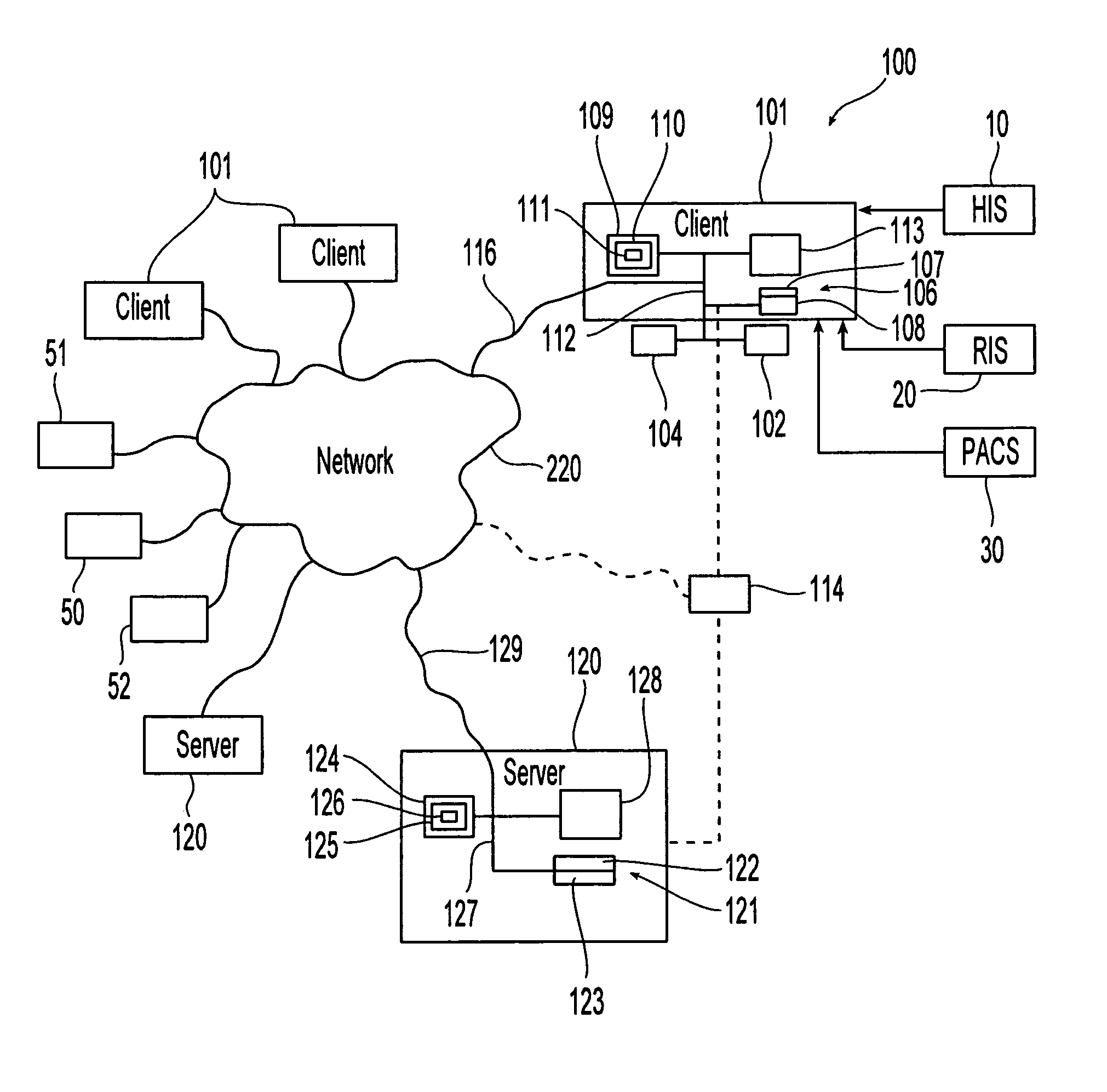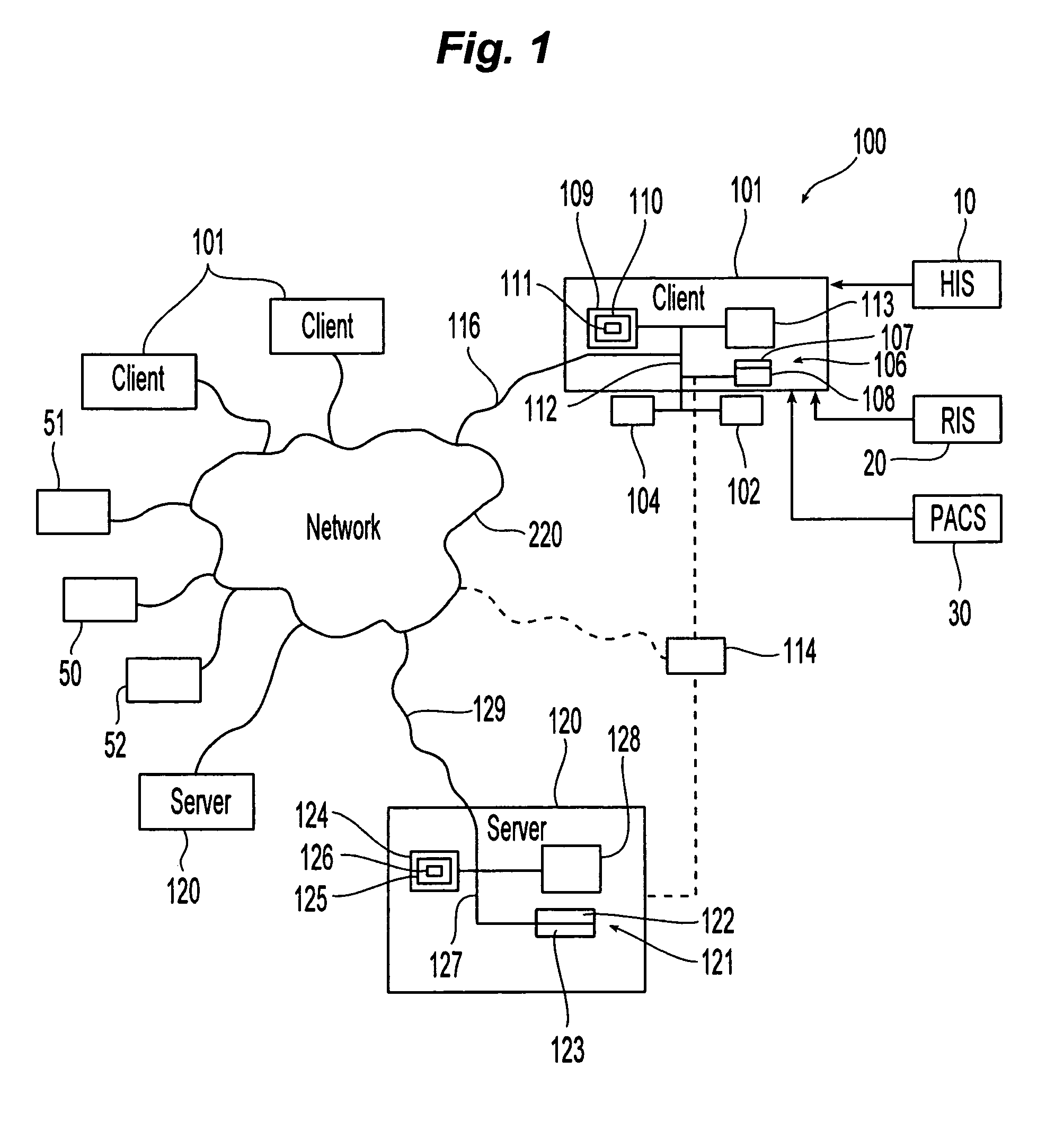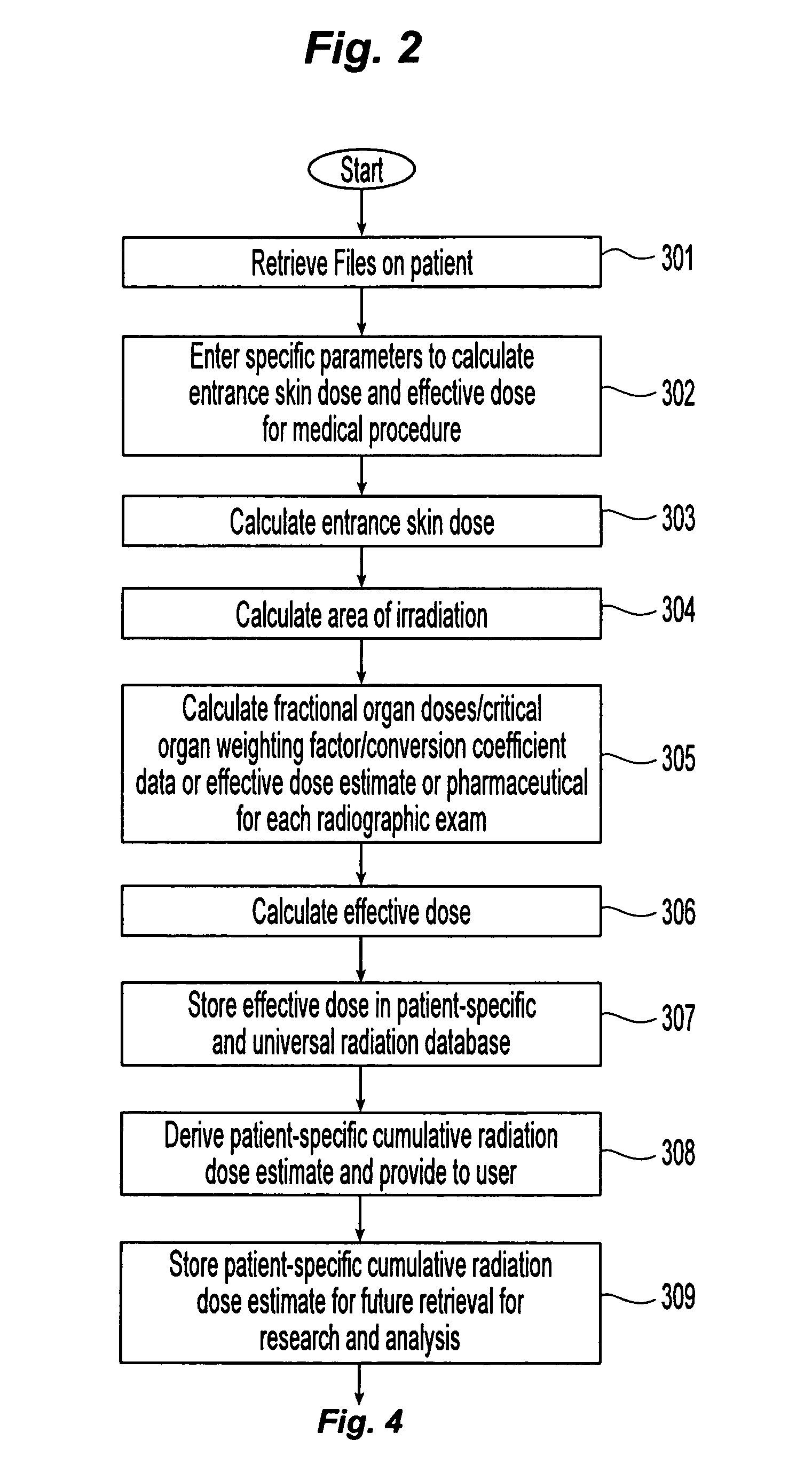Method and apparatus of providing a radiation scorecard
a radiation scorecard and score technology, applied in the field of radiation scorecards, can solve the problems of no central repository of patient data, no patient data, no feedback mechanism, etc., and achieve the effect of reducing environmental, occupational, medical radiation dose exposure, and improving patient safety
- Summary
- Abstract
- Description
- Claims
- Application Information
AI Technical Summary
Benefits of technology
Problems solved by technology
Method used
Image
Examples
example
[0293]In one exemplary embodiment, the following steps are taken in preparing the Radiation Scorecard.
[0294]In step 601, the physician places an order for a medical imaging exam using the PACS or RIS or other physician-related apparatus. In step 602, the Radiation Scorecard program 110 will query the Radiation Scorecard Database 113, 114 to determine the exam appropriateness based on the patient's medical history etc.
[0295]In step 603, the program 110 will query the database 113, 114 to determine if comparable imaging data is already present in order to provide a comparison of the type of imaging quality and results should be received.
[0296]In step 604, the program 110 will review the data on the patient, and their scorecard, to calculate the additional radiation burden from the proposed imaging study. This information will be compared by the program in step 605, against a maximum exposure amount that is considered safe for the patient, and the results provided to the clinician in s...
PUM
 Login to View More
Login to View More Abstract
Description
Claims
Application Information
 Login to View More
Login to View More - R&D
- Intellectual Property
- Life Sciences
- Materials
- Tech Scout
- Unparalleled Data Quality
- Higher Quality Content
- 60% Fewer Hallucinations
Browse by: Latest US Patents, China's latest patents, Technical Efficacy Thesaurus, Application Domain, Technology Topic, Popular Technical Reports.
© 2025 PatSnap. All rights reserved.Legal|Privacy policy|Modern Slavery Act Transparency Statement|Sitemap|About US| Contact US: help@patsnap.com



